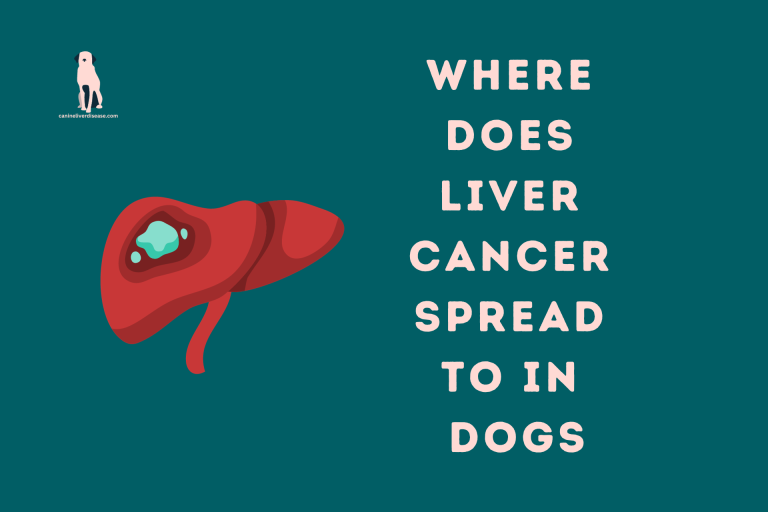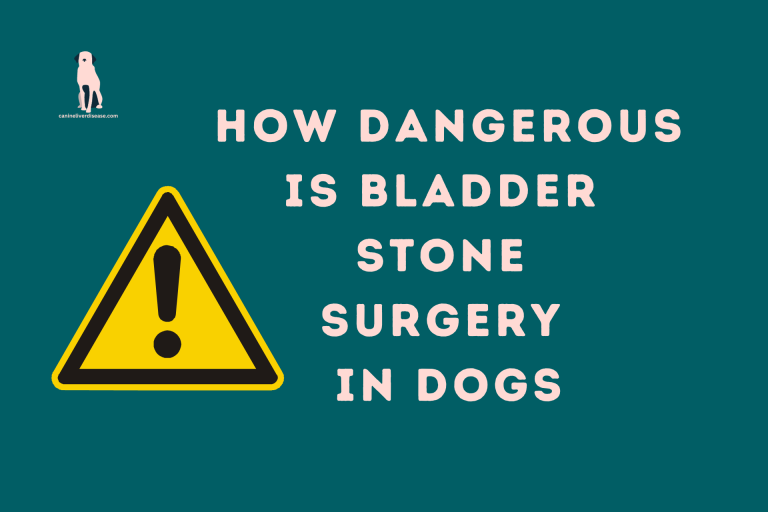How Long Can A Dog Live After Being Diagnosed With Liver Disease?
QuickAnswer: A dog can live for 2 to 3 years with proper care and treatment after being diagnosed with liver disease.
When a beloved furry friend is diagnosed with liver disease, it can be a challenging and emotional experience for any pet owner. Questions about their pet’s prognosis and how long they can expect their dog to live become paramount.
In this article, we will explore the topic of “How long can a dog live after being diagnosed with liver disease?” and provide valuable insights to guide you through this difficult journey.
Understanding Liver Disease in Dogs
Liver disease in dogs can take various forms, including hepatitis, cirrhosis, and tumors. It can result from infections, toxins, or genetic factors. The liver is vital in metabolizing nutrients, detoxifying the body, and producing proteins necessary for blood clotting. When the liver is compromised, it can have serious health implications for your canine companion.
Causes of Liver Disease
Liver disease in dogs can be caused by a range of factors, including:
- Infections such as hepatitis
- Exposure to toxic substances like certain medications or chemicals
- Genetic predisposition
- Poor diet and obesity
- Aging
Detecting Liver Disease
Detecting liver disease early is crucial for effective treatment. Common signs of liver disease in dogs include:
- Loss of appetite
- Weight loss
- Jaundice (yellowing of the skin and eyes)
- Vomiting and diarrhea
- Increased thirst and urination
If you notice any of these symptoms in your dog, consult your veterinarian for a thorough evaluation.
Treatment Options
The treatment for liver disease in dogs varies depending on its cause and severity. It may involve dietary changes, medication, and supportive care. Your veterinarian will tailor the treatment plan to your dog’s specific condition.
Prognosis and Life Expectancy
The prognosis for dogs with liver disease can vary widely. Factors that influence life expectancy include the type and stage of the disease, how well your dog responds to treatment, and any underlying health issues. Some dogs can live for several years with proper management, while others may have a shorter life expectancy.
Tips for Improving a Dog’s Quality of Life
While coping with liver disease can be challenging, there are steps you can take to enhance your dog’s quality of life:
- Follow your veterinarian’s treatment plan diligently.
- Provide a balanced and liver-friendly diet.
- Minimize exposure to toxins.
- Offer a comfortable and stress-free environment.
- Monitor your dog’s health regularly.
Conclusion
In conclusion, a diagnosis of liver disease in your dog can be distressing, but it’s essential to remember that each case is unique. Working closely with your veterinarian and following their guidance can significantly affect your dog’s prognosis and overall well-being. Cherish your time with your furry companion and ensure they receive the care and love they deserve.
FAQs
1. Can a dog with liver disease live a normal life?
The life expectancy of a dog with liver disease depends on various factors. Many dogs can enjoy a good quality of life with proper treatment and care.
2. Are there any dietary restrictions for dogs with liver disease?
Yes, dogs with liver disease may benefit from a special diet your veterinarian prescribes. This diet is designed to reduce the workload on the liver.
3. Is liver disease in dogs curable?
The curability of liver disease depends on its cause and stage. Some forms of liver disease can be managed with treatment, while others may be more challenging to cure.
4. What can I do to prevent liver disease in my dog?
Preventing liver disease involves maintaining a healthy diet, avoiding exposure to toxins, and regular veterinary check-ups to detect any issues early.
5. How often should I have my dog checked for liver disease?
It’s essential to follow your veterinarian’s recommendations for check-up frequency. Dogs with a history of liver issues may require more frequent monitoring.







